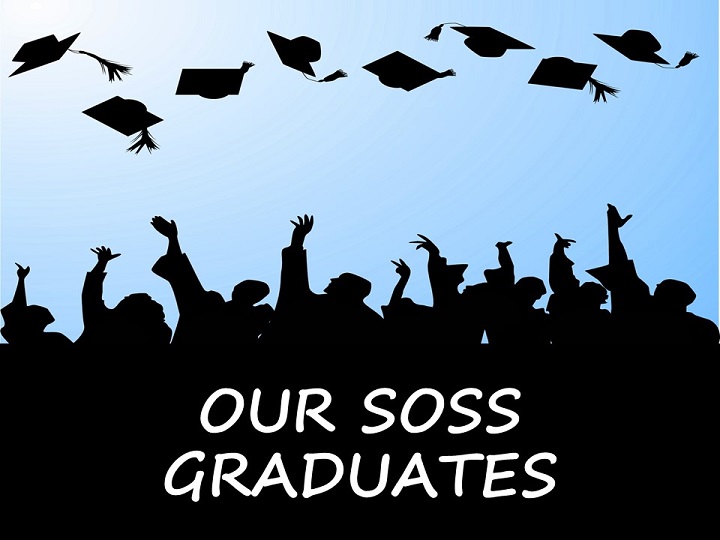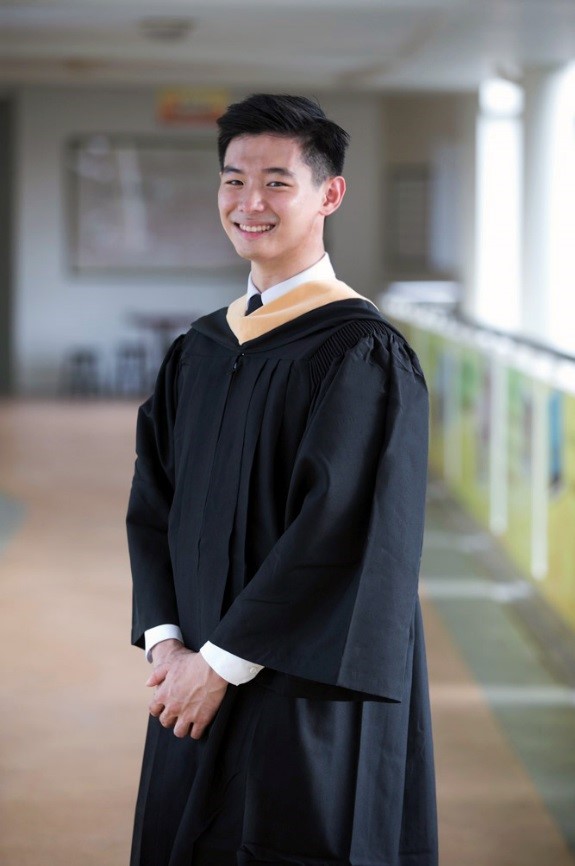

Rayner Tan Kay Jin graduated from the SMU School of Social Sciences in July 2016 with a Bachelor of Social Science in Sociology. We managed to get a chance to ask Rayner a few questions about his current postgraduate experience and his journey as an SOSS undergraduate.
1. Where are you doing your postgraduate studies? Could you briefly describe what your graduate programme is about?
I am currently a PhD candidate at the Saw Swee Hock School of Public Health (National University of Singapore), sponsored by the Courage Fund Scholarship for Infectious Diseases research. The Saw Swee Hock School of Public Health focuses on three main domains of public health – Biostatistics, Epidemiology and Health Systems and Behavioural Sciences; of which I belong to the latter two domains. My PhD thesis investigates the relationship between internalized homophobia and other psychosocial or cultural factors on HIV/STI risk behaviours amongst men who have sex with men in Singapore.
The PhD program requires me to complete coursework on core Public Health modules (e.g. principles of epidemiology, quantitative epidemiological methods), electives (e.g. qualitative methods in Public Health, control of communicable diseases), alongside cross-faculty courses that might be of interest or use to my research (e.g. sociological theory, medical sociology etc.) over the course of my first 2 years in school. At the end of 2 years, I should have submitted or published at least 1 manuscript as a first author, and completed my coursework to qualify for the PhD Qualifying Examinations (PQE). The remaining 2 to 3 years will be reserved for research and writing up of my PhD thesis. At the end of my tenure, I will have to submit my thesis, and publish at least two first author papers to be conferred a PhD.
2. What made you decide to apply for this graduate programme? What part of it do you find particularly meaningful or satisfying?
Medical sociologists are often caught between two options – To pursue a sociology of medicine OR a sociology in medicine. The former refers to the application of sociological paradigms in understanding medical structures, phenomena, and processes; it looks at power structures, labelling and diagnoses, knowledge creation etc. The latter, however, refers to an application of sociological methods in understanding trends in medicine and health; for example, looking at how psychological measures such as social support, social isolation, and self-rated health are correlated with biomedical or physiological measures of health, all the while applying sociological theories and epistemological frameworks. Ultimately, those pursuing a sociology of medicine tend to end up in academic institutions such as universities, where “pure” research thrives, while those pursuing a sociology in medicine end up conducting applied research at public health institutions – although admittedly this may be a broad generalization of trends. I am interested in both areas, but have parked myself in the latter so that I may conduct research that directly informs or translates to evidence-based policy making in healthcare institutions and the ministry.
I feel that fear, stigma, and discrimination usually dominate discourses on infectious diseases such as HIV and other sexually transmitted diseases, over even issues such as addiction and substance abuse. Such issues tend to generate a lot of moral entrepreneurship in different settings, and especially in relatively conservative societies such as Singapore’s, making it more of a disease of morals than the physiological body. These normative and moral stances oftentimes serve as justification for certain discriminatory laws that inadvertently reproduce stigma or impede interventions, which consequently feeds into the rising incidence of disease. With the availability of effective and somewhat affordable treatment options, I do feel that the incidence of diseases such as HIV/AIDS are often driven by structural or psychosocial factors, rather than biomedical ones. I hope to shed light on such mechanisms and pathways through my research.
In the larger scheme of things, I hope to use research as a means of providing a voice to marginalized communities, and to improve the lives and well-being of those who are disadvantaged in society.
3. What were some of the beneficial courses you took or experiences you had in SMU that eventually came in useful for postgraduate studies?
Although SMU doesn’t have a course on Medical Sociology, I got the opportunity to pursue and build on my skills through my senior thesis (“Correlates of HIV/AIDS discrimination amongst men who have sex with men: The case of Singapore”), which was accomplished under the mentorship and supervision of Prof. ‘Puk’ (Bussarawan Terrawichitchainan). Through her mentorship, I got to learn how to create a survey instrument, employ different statistical tools such as bivariate and multivariate analytical methods (e.g. ANOVA, Multiple OLS Regression), and how to draft a manuscript.
Another course that was tremendously useful to my graduate career was the SMU-X Public Policy Taskforce by Prof. Ijlal Naqvi, where I got to familiarize myself with observational qualitative research methods such as ethnography and conducting in-depth interviews. Both the senior thesis and public policy taskforce have allowed me to position myself as a mixed methods researcher, which is especially useful in conducting both exploratory and descriptive studies for areas of research that aren’t as well developed (such as HIV/AIDS amongst men who have sex with men in Singapore).
I have been blessed with many opportunities thanks to this opportunity to pursue research at the undergraduate level. My senior thesis has been accepted for presentation at the 2nd Singapore International Public Health Conference (September 2016, Singapore), the 10th Singapore AIDS Conference (December 2016, Singapore), and at the 9th International AIDS Society Conference for HIV Science (July 2017, Paris), and has opened a lot of doors for collaborations in my field that have been useful for my graduate research. My senior thesis has also been revised as a manuscript and submitted for publication.
4. What advice do you have for your SOSS juniors who may be contemplating postgraduate studies?
I think phrasing this using an alliterative mnemonic device might be fun:
Prepare Yourself
- Senior Thesis, Teaching Assistantships, and Research Assistantships. These are all available for you at SMU – Find a mentor who will be able to guide you in the right direction, and see how you can contribute to his or her research and teaching as well.
- Explore Collaborative Research Opportunities with External Institutions. Do not be afraid to e-mail potential employers or professors to assist in projects that will benefit you in terms of your knowledge and research skills in your area of interest. This will also allow you to find out if a lifelong career in conducting research and academic writing is suited for you. I spent my senior year at SMU and the year after graduation working for professors at Tan Tock Seng Hospital’s Institute of Infectious Diseases and Epidemiology, NUS Faculty of Arts and Social Sciences, NUS Saw Swee Hock School of Public Health, and NUS Faculty of Law, before applying for my PhD program.
Plan Ahead
If you are looking to apply for a graduate program overseas, do not forget that you need to study, and sit for these standardized tests. Start on your cover letters early, and get your academic referees in order. If you are applying for specific scholarships or fellowships, take note of all the deadlines and requirements – I started a spreadsheet to help me keep track of all these.
Persist (Shamelessly)
Rejection sucks, but know that it’s not always about you – it also depends greatly on the school’s resources, the availability of research grants and scholarships, availability of potential faculty members as supervisors etc. I got rejected and waitlisted for several PhD programs both overseas and in Singapore, and even got rejected from a Masters in Sociology program, but eventually got offered a scholarship based on my research interests.
Also, you have a wealth of information and knowledge sitting on Level 4 of SMU School of Social Sciences – The faculty members. Get to know them, their research interests, and see how you can be of service to them. You needn’t go too far.